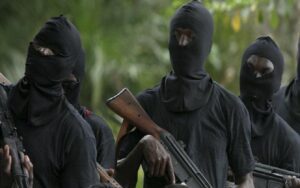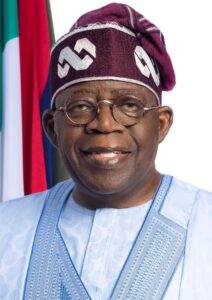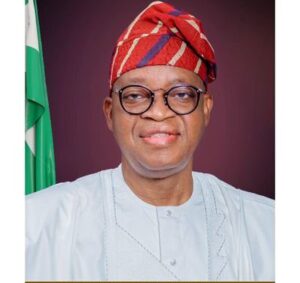Ooni, Ogungbangbe woo Osun war torn communities on co-existence
By ISAAC OLUSESI
Ooni of Ife, Oba Adeyeye Enitan Ogunwusi, Ojaja II and Dr Thomas Olaleye Ogungbangbe, the scion of the Ajagbusi Ekun Ruling House of Iloko Ijesa have urged the communities of Ilobu and Ifon in Osun State to always nip in the bud social tortures and combustions which could wreck the Yoruba collective peace and aspirations for meaningful development. Oba Ogunwusi and Prince Ogungbangbe conceded that no enduring progress could be achieved in the face of embittered, fiendish and aberrant characters, spilled out onto the streets.
The militant natives, embattled and up in arms as freelancers, shot fits and starts, spasmodic in the air, and other belligerents on hand dispensed all kinds of imaginable, unimaginable vices, with some victims made to pay the supreme price or live with bodily scars, bruised psyche and low ebbed morale. While physical communication and economic activities in the war torn headquarters of Irepodun and Orolu local government areas of the state were paralyzed and social dislocations as harsh consequences turned nooks and crannies hell on earth as men, women were robbed or abused, sordid; and detailed statistics of deaths, heart rending.
Reportedly, fourteen police officers, with a Divisional Police Officer (DPO) were wantonly injured; eight people burnt or killed by bullets strayed from firing security operatives in response to surging vicious hostilities as residents fled away from resentful scenes; multiple dozens of houses, shops and vehicles, razed down; lifeless bodies, still counting, were evacuated; and serving corps members in the areas, disentangled. In the aftermath, the state government slammed a 24-hour curfew, a total shutdown on the communities in conflicts. And the disputed land confiscated, differently, the law ‘ll be visited on trespassers which comes with dire consequences.
Reacting separately, the Ooni of Ife had particularly invoked the sacred throne of Oduduwa and adjured the Ilobu and Ifon natives to cease fire.
“Stop further destruction of lives and properties. Land inheritances are the heritage of God Almighty, God’s given space,” Ojaja II declared, desiring very strongly that peace, voluntarily through love and will power, not coercion, must return, thick for touch, in the two communities, horn locked over disputed land boundary.
“Let there be peace, bury your swords, and mediation, dialogue, peace building and peace keeping to follow,” Ooni of Ife passionately implored the communities at war. He prayed the Obas in the axis rise up to the occasion and rally subjects behind peace, unity and progress as he beseeched that traditional rulers in Nigeria, generally, have an important role in the quest for peace and unity.
Ogungbangbe, a cute businessman, unassuming, well composed, and lover of peace hammered on the latest efforts at the peace entente or treaty signed by the two restless communities, with Osun government as both witness and observer.
He described the initiative as fantastic, a plausible commentary and pledged his unflinching support for the peace concordat, saying, “it is an opportunity provided to settle the long standing communal rift.” He advised the two sides to rest their differences and work together to be relevant in the scheme of things and have a fair developmental share of what’s due to them as communities of peace and unity with developmental agenda in sight and, not as with atomic human settlements, perpetually in conflicts, intra.
In that way, the Ilobu and Ifon peace charter, an official agreement to end disputes and restore peace which the communities’ leaderships did on self accord could compare to the backward movement of a he-goat as a tactical renewal of energy to confront headlong, the challenges to the continued harmonious communal relationships and survival.
This will enable the two communities regain all that has been lost to communal antagonists’ postures of self destruct. Ogungbangbe enjoined the people of Ilobu and Ifon to deploy sufficient political will as an instrument of integration and development of their communities in our nation’s developmental democracy.
The astute politician of All Progressives Congress (APC) extraction from Ijesa North of Osun East Senatorial District and a royal prince of the ruling Owaloko of Iloko Ijesa in Oriade local government council area of Osun asked the two combative communities to always temper their developmental idealism with realism as against setting the tone for utopian separatist agenda and its brouhaha by a self seeking babel of plethora of turmoils, agitations and strife at the same time that make evil begets evil. Such tit for tat will only lead to bedlam, chaos, uproar and outright break down of law and order, first as momentum, and then, a full blown disaster in sequence. And that will not bode well for peace and unity, “but it will only attract government indignation,” he stated.
Ooni of Ife had earlier called on President Bola Ahmed Tinubu to employ the services of traditional rulers to tackle the challenges of insecurity, entreating the president not to underestimate the competence of traditional rulers. The foremost king who’s also the co-chair of traditional rulers in Nigeria spoke on behalf of the National Council of Traditional Rulers of Nigeria (NCTRN) during a courtesy call on Tinubu at the State House Conference Center, Abuja.
And still on Ilobu-Ifon imbroglio, Ogungbangbe recommended to the state government to come up with a Security Policy Document (SPD) that leaves no one in doubt about its readiness to confront insecurity headfirst. This, the government could do after it may have had a productive security summit. Such SPD after a thorough analysis of the outcome of the security indaba should help boost public confidence in the safety of public assets, protection of personal life and property as well as preservation of domestic peace without fear of molestation from any quarters.
Underscoring the security indaba or talks, the assurance or prevalence of peace in Osun is highly capable of generating huge interest in investors and entrepreneurs in the development of the state. The highly probable increase in the internally generated revenue will bring about more jobs.
And the biggest gain will be the Osun economy for revitalisation.
OLUSESI writes via isaacolusesi@gmail.com




